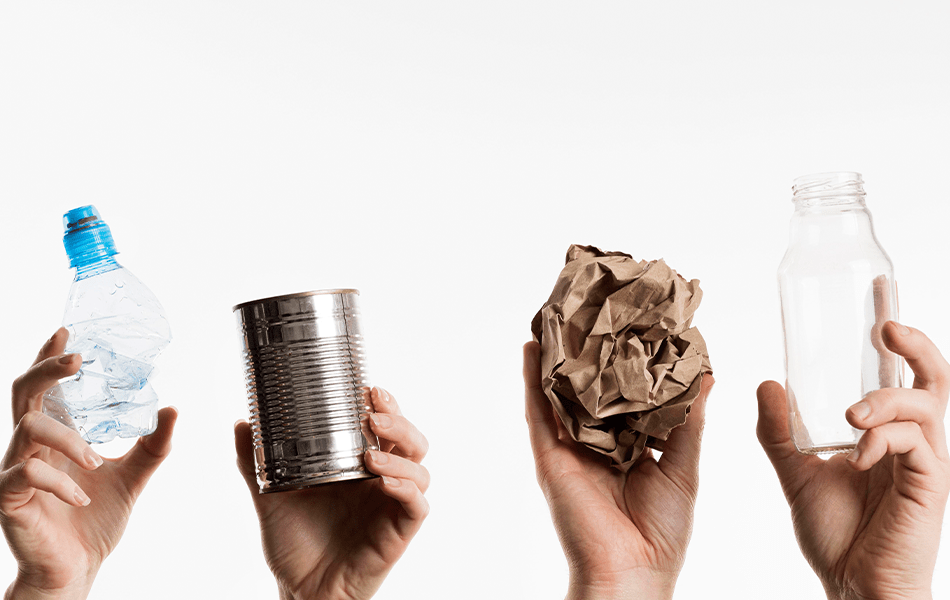Surprisingly, many individuals, organizations, and communities want to do more to safeguard and preserve our natural resources, but they are unsure of how to start becoming ecologically conscious.
The first thing you need to learn is what makes each of these components of our environment important to the process of altering and conserving our resources, as well as how to start making a difference.
Making this globe a better place for our communities and future generations just requires little measures toward protecting Mother Earth.
An excellent place to start would be to conserve water to avoid water pollution, drive less and walk more, use less energy, buy recycled goods, eat locally grown veggies or fresh food, join environmental organizations to fight air pollution, produce less waste, plant more trees, conserve energy, buy eco-friendly products, and many other things.
Before I give tips about having eco-friendly habits at home or about good eco-friendly habit to have, below are the reasons why being eco-friendly is important.
Why Is Being Environmentally Friendly Important?
Everything fits together like a puzzle; you can’t single out one company or practice and assign blame for all of our environmental problems.
The more each of us contributes, the faster we will develop a whole ecology of living that encourages sustainability. The first step is to start learning the fundamentals of what each area of life can do to become more ecologically friendly.
The next phase is to begin learning how to change your awareness and resource usage through personal decisions that you make. The adjustments are surprisingly simple to implement, and there are more methods than you might imagine to start engaging in conservation.
Below are the three various eco-friendly categories:
The Environmentally Friendly Business
It takes more effort to run a green firm than just agreeing to a cap-and-trade agreement.
Everything that can be done can help businesses become more environmentally conscious, including how items are displayed and sold, how waste is recycled, and whether or not adjustments can be made to the fundamental ways they operate.
The management of supply can be heavily stressed in non-producing businesses.
It’s possible that purchasing locally is the best ethical course of action, even though this isn’t always the case. Another crucial responsibility of the environmentally friendly firm is how it helps the community with its environmental conservation efforts.
The Environmentally Friendly Community
There is more in place in a town that values the environment than merely a successful recycling program.
Communities that are dedicated to resource conservation and preservation support initiatives like neighbourhood playgrounds, public transportation, and green building, and they also fight to modify how fossil fuels and other resources are utilized to fund local services.
The Environmentally-Friendly Person
A person who practices environmental awareness is one who goes through life mindful of how natural resources are used to build and sustain the life they lead.
They recycle, use less water and fuel, and make other decisions that not only have a less negative impact on the environment but also help support businesses that are trying to live more sustainably.
Easy ways to become more environmentally-friendly
Many people are seeking methods to alter their lives in order to live an eco-friendly lifestyle, change their communities, and change the globe as resource depletion and climate change continue to be important issues. Thankfully, there are a number of things that even one individual can do to help.
It’s simpler than you may think to learn how to live more sustainably. Start slowly to make the adjustments more manageable and part of your daily routine rather than making drastic changes right away.
Eco-friendly practices, such as adopting a recycling mentality, using green technology to lessen your reliance on fossil fuels, and keeping your air conditioner set to less wasteful settings, can be quickly and easily incorporated into any lifestyle. They also help reduce the negative effects on the environment. Below are some pointers for creating daily routines that encourage a sustainable lifestyle while lowering your carbon footprint and utilizing energy-efficient products:
Conserve water
The first tip for practicing eco-friendly habits at home is to save water. Water needs to be conserved since it takes a lot of energy to pump water from lakes or rivers into your home. Using less water cuts down on the energy required to filter it.
Without even realizing it, we waste a lot of water around the house. To save water around the house, install efficiency-improving fixtures, aerate your faucets, install a low-flow showerhead, get a low-flow toilet, and use an energy-efficient dishwasher and washing machine.
Good eco-friendly habits to have are to take shorter showers, fix leaky pipes, don’t leave the faucet flowing while you brush your teeth, recycle water within your home, utilize water-saving gadgets, and collect rainfall in a bucket to water your grass, to name a few ways of conserving water energy.
We waste a lot of rainwater that we could otherwise use; therefore, you can also install a rain barrel. Use the roof water collected from the downspouts and gutters around the house.
Invest in Energy-Efficient Light Bulbs
A second tip for a good eco-friendly habit to have is to switch to LED light bulbs instead, which are both more efficient and have a longer lifespan than conventional light bulbs. Additional to that, you can customize the lighting to fit your room because they come in a wide range of brightness and patterns. You’ll use less energy in this manner.
One of the best methods to lessen your carbon footprint is to use less electricity at home or upgrade to energy-efficient appliances.
The best bulbs for consuming the energy utilized to light your home are energy-saving CFL or LED bulbs. By using these bulbs, you may save the energy you need for illumination by 25 to 35 percent.
Cut Down Meat on your Plate
The third tip for practicing eco-friendly habits at home is reduce your meat consumption. Just reducing your meat consumption would make a significant difference in the environment if you wanted to be more eco-friendly. Even a small reduction in your carbon footprint, such as skipping it for a couple of days a week, would make a big difference.
Imagine how many opportunities there are to turn the tables when you consider that there are billions of individuals who eat many meals each day. It is certainly possible to eat plant based foods, such as vegetables, fruits, grains, and legumes, in order to increase nutrition and enjoyment while also reducing emissions.
Reduce the Use of Harmful Chemicals to clean your home
The fourth tip for practicing eco-friendly habits at home is to avoid using hazardous substances like paint, oil, ammonia, and other toxic chemicals. Solutions can contaminate the air and water when they are disposed of in an open manner.
The groundwater may be contaminated by these substances. Human health may suffer significantly as a result of the pollution of the air and water. As a result, they ought to be safely disposed of at a toxic waste site.
For Good eco-friendly habits to have start by switching to natural cleaning products that are intended expressly to clean and disinfect surfaces instead of toxic ones like bleach or ammonia. Chemical cleaning products are full of dangerous chemicals that can be bad for the environment and your health.
Natural cleaners or natural cleaning products are made with ingredients that can be found in your kitchen, such as lemon juice or vinegar to clean surfaces like counters; baking soda for cleaning ovens; and white distilled vinegars mixed in different strengths (such as a half vinegar and half water) is ideal when you need something more powerful than just soap but not too strong either. Without causing any damage to their homes, individuals have used these natural products all across the world! Also, they’re non-toxic to animals, so you don’t have to worry about them ingesting them while they’re cleaning up after themselves outside.
Essential oils are a terrific natural disinfectant because there are so many different kinds available, from lavender oil, which is peaceful and antibacterial, to other essential oils with various advantages for cleaning your home and for your health.
Start a Compost Pile
The fifth tip for practicing eco-friendly habits at home is composting. Composting is a natural process that transforms leftover food waste or excess food and plant material into nutrient-rich nourishment for your plants, promoting their growth. The amount of waste food that is dumped in landfills, which pollutes the atmosphere, has decreased. In this way, it can be shown to be environmentally safe.
By returning your organic waste (such as food waste) to the ground as fertilizer for plants, composting is one of the many ways we can lessen this issue. With just an hour of work per weekend day spent doing so, you may utilize compost on anything from houseplants to vegetable gardens at home, all while lowering the greenhouse gases emissions created by landfills throughout each year. Better soil quality, stronger crops, and prettier gardens are just a few of the amazing advantages of this little effort that will yield enormous results over time.
Encourage the Mantra ‘Reduce, Reuse, Recycle’
Sixth tip to good eco-friendly habits to have: the three R’s (reduce, reuse, and recycle) trash hierarchy, which establishes the order of importance for the many actions that need to be taken to lessen waste production, energy consumption, and enhance overall waste management processes and programs.
Simply put, the word “reduce” refers to the reduction of production and consumption. Avoid placing objects in landfills by reusing them for another purpose. When something is recycled, it is changed back into a raw material that can be used to create a new product.
Recycling game is the most crucial eco-friendly behaviour of all. This one seems obvious, yet despite how simple it is, not everyone contributes to keeping our planet clean. It simply takes a few extra minutes each day or week (depending on how frequently), but it could save us from running out of space years from now when there will also be less room available due to the fact that there are more people living here than ever before.
Recycling habits help preserve the environment and to experience renewable energy, lowers pollution, and save energy. Recycling is the process of cleaning up plastic waste, solid plastic, recycling bin/ recycling bins, and separating waste to create “secondary materials” that can be used to make new products, primarily glass, paper, paper towels, metal, plastic bottles, and plastic. For instance, recycled metal is a very important resource. According to the Aluminium Association, recycling aluminium improves industrial efficiency by 92% compared to using wasted raw materials. Although recycling provides around 40% of the nation’s aluminium supply, we still discard aluminium cans worth close to $1 billion every year that could have been recycled.
Please recycle everything you can, including cardboard boxes, newspapers, magazines, tabs, cans, plastic containers, paper towels, etc.
Since practicing an eco-friendly habits at home has a huge environmental impact.
Single-Use Plastic Habit
Another bonus tip for good eco-friendly habits to have is instead of purchasing plastic bottled water each day, bring your own reusable drinking water bottle or reusable containers and fill them up at the office or school’s drinking fountain. In addition to being better for the environment, this will save you money. Instead of paper towels that are frequently discarded after use, use cloth towels and napkins to dry your hands, dishes, etc. (and usually end up in landfills). They are always available as needed and may be cleansed over time, so there is absolutely no waste involved. Also, because they don’t need to be left to air out before being used again like some disposable items do, these materials also dry quickly.
Using reusable bags rather than plastic bags from the grocery store has another huge impact on the environment. Because plastic bags are so inexpensive as compared to alternative materials like paper, their use has expanded significantly over time (which would cost more). As a result, a lot less trees will needlessly perish since we no longer purchase their goods and use reusable bags instead of plastic bags, but we continue to receive what we require, namely groceries delivered to our door each week in a neatly packaged easy box.
Wash clothes in cold water
Next to bonus tip to a good eco-friendly habit to have wash clothes in washing machine but do not use dryer. Instead of using the dryer or hot water, wash your clothing in cold temperature water and hang them to dry. By not heating the whole house for a single load of laundry, you may save money on energy use and lessen your ecological footprint.
Also, it saves money because you don’t need as many loads if you wash everything at once rather than every day or two like the majority of people do these days. And it’s better for the environment too, as less power means less heat which means fewer greenhouse gas emissions from power plants that generate the electricity needed for drying cycles (and we all know how significant those emissions can be). Plus, there is no risk of mold growth when hanging them outside, which happens frequently enough inside due to time constraints, as such things are done every day, so this makes sense from both an economic and environmental standpoint.
Buying local or used clothes
The second and the last bonus tip for a good eco-friendly habits to have is to buy local. The fashion business uses a lot of money, energy, and other natural resources to create just one item, and the waste product of these operations threatens the delicate ecosystem of our world.
By recycling clothing, you may help save money, home energy increase, energy efficiency, and conserve renewable sources by shopping at thrift stores or online resale sites. Reusing clothing also helps keep it in good condition. Because new materials don’t have to be created when customers purchase used goods, less waste and energy are produced throughout the manufacturing process, which results in more products being recycled without being thrown away first. This lowers production costs. Less transportation will be required as a result of fewer raw materials beginning their journey, which will lead to a decrease in carbon emissions.
Switch to an eco-friendly car
Finally, last bonus tip to practice a good eco-friendly habits to have is use an environmentally friendly car like electric cars etc. Personal carbon footprints have a devastating effect on the ecosystem and use a great deal of natural resources. Reduce your use of personal vehicles, use public transport or walk or bike whenever you can to lessen your influence on the environment. This will help you live more sustainably. Walking or bicycling to work is a terrific form of exercise in addition to having a positive impact on the environment.





